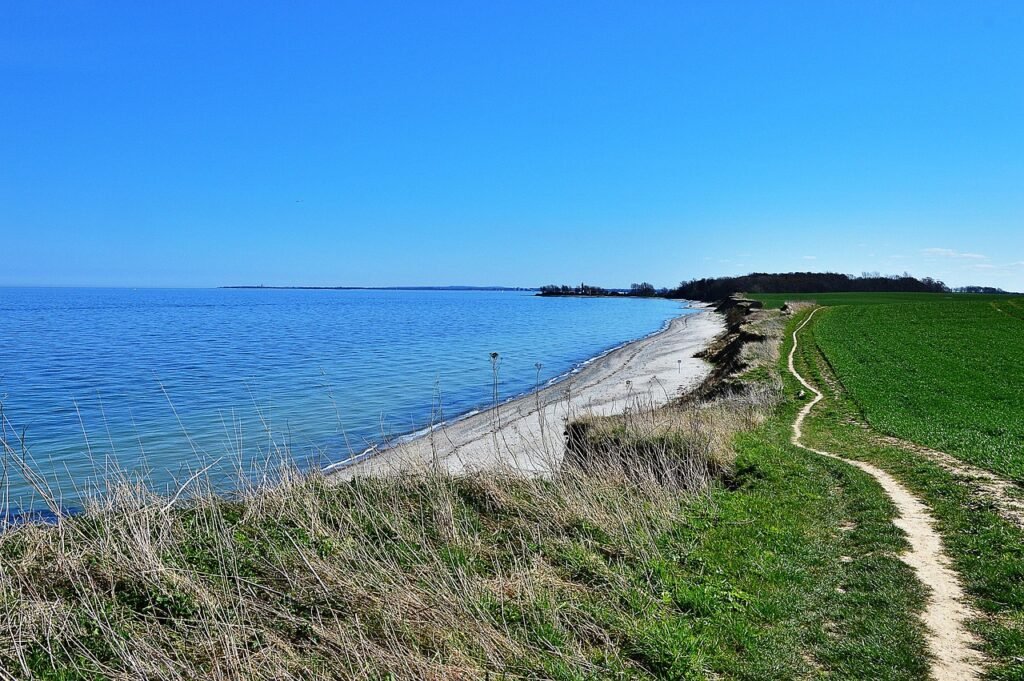Imagine the sun kissing your skin, the gentle sound of waves crashing on the shore, and the feeling of soft sand between your toes. Beaches are more than just picturesque landscapes; they’re vibrant ecosystems, recreational havens, and essential parts of our planet’s coastal environments. Whether you’re seeking relaxation, adventure, or a deeper connection with nature, a day at the beach offers something for everyone. Let’s dive into the fascinating world of beaches, exploring their formation, benefits, activities, and how to protect these precious environments.
The Formation and Dynamics of Beaches
Beaches aren’t static landscapes; they’re constantly evolving through natural processes. Understanding these processes helps us appreciate their dynamic nature.
Wave Action and Sediment Transport
- Erosion: Waves erode coastal cliffs and rocks, breaking them down into smaller particles like sand and pebbles.
- Transportation: Currents and tides transport these sediments along the coastline.
- Deposition: When wave energy decreases, sediments are deposited, forming beaches.
- Longshore Drift: This process, driven by waves approaching the shore at an angle, moves sand along the coastline, shaping beaches over time. Think of how this creates spits and barrier islands.
Different Types of Beaches
- Sandy Beaches: Composed primarily of sand grains, often quartz, but can also be derived from coral, volcanic rock, or shells.
- Pebble Beaches: Made up of rounded stones and pebbles, often found in areas with strong wave action. Example: Chesil Beach in the UK.
- Shell Beaches: Dominated by fragments of seashells, creating unique and colorful landscapes.
- Volcanic Beaches: Characterized by black sand derived from volcanic rock, such as the beaches in Hawaii and Iceland.
The Role of Tides
Tides significantly influence beach morphology. High tide covers a larger area, while low tide exposes more of the beach, affecting wildlife habitats and recreational opportunities. Tide pools, exposed during low tide, are miniature ecosystems teeming with life.
Benefits of Spending Time at the Beach
Beyond the obvious relaxation and fun, spending time at the beach offers numerous physical and mental health benefits.
Physical Health Benefits
- Vitamin D: Exposure to sunlight helps your body produce Vitamin D, essential for bone health and immune function. Remember to use sunscreen!
- Exercise: Walking, swimming, and playing beach games provide excellent physical activity. Even strolling along the beach burns calories and strengthens muscles.
- Improved Sleep: The combination of fresh air, sunlight, and physical activity can contribute to better sleep quality.
Mental Health Benefits
- Stress Reduction: The sound of waves and the vastness of the ocean can have a calming effect on the mind, reducing stress and anxiety. Studies show that being near water can lower cortisol levels.
- Increased Creativity: The open space and natural beauty of beaches can inspire creativity and enhance cognitive function.
- Mindfulness: Focusing on the present moment, such as the feeling of sand between your toes or the sound of the waves, promotes mindfulness and relaxation.
Examples of Beach Activities for Wellbeing
- Yoga and Meditation: Practice yoga or meditation on the beach for a deeper connection with nature and inner peace.
- Beachcombing: Search for shells, sea glass, and other treasures washed ashore.
- Barefoot Walking: Grounding, or earthing, involves walking barefoot on the sand, believed to have potential health benefits like reducing inflammation.
Activities and Recreation on the Beach
Beaches offer a wide array of activities to suit various interests and preferences.
Water Sports
- Swimming: Enjoy a refreshing swim in the ocean, but always be aware of currents and tides.
- Surfing: Catch some waves and experience the thrill of riding the ocean. Popular surfing destinations include Hawaii, California, and Australia.
- Snorkeling and Diving: Explore the underwater world and discover vibrant coral reefs and marine life.
- Kayaking and Paddleboarding: Enjoy a leisurely paddle along the coastline, taking in the scenic views.
Land-Based Activities
- Beach Volleyball: Gather friends for a fun and competitive game on the sand.
- Building Sandcastles: Unleash your creativity and construct impressive sandcastles.
- Picnics and BBQs: Enjoy a delicious meal with family and friends while soaking up the sun.
- Kite Flying: Take advantage of the sea breeze and fly a kite high in the sky.
Responsible Beach Recreation
- Leave No Trace: Pack out everything you pack in, and dispose of trash properly.
- Respect Wildlife: Avoid disturbing nesting birds or marine animals.
- Use Reef-Safe Sunscreen: Protect coral reefs by using sunscreen that doesn’t contain harmful chemicals.
Protecting Our Beaches
Beaches are facing increasing threats from pollution, climate change, and human activities. It’s crucial to take action to protect these valuable ecosystems.
Threats to Beaches
- Pollution: Plastic waste, oil spills, and sewage contamination can harm marine life and degrade water quality.
- Coastal Erosion: Rising sea levels and increased storm intensity are accelerating coastal erosion, threatening beaches and coastal communities.
- Climate Change: Ocean acidification and warming waters are impacting coral reefs and marine ecosystems.
- Overdevelopment: Construction along coastlines can disrupt natural processes and destroy habitats.
Conservation Efforts
- Beach Cleanups: Participate in beach cleanups to remove litter and debris.
- Reduce Plastic Use: Avoid single-use plastics and choose reusable alternatives.
- Support Sustainable Tourism: Choose eco-friendly accommodations and activities that minimize environmental impact.
- Advocate for Policy Changes: Support policies that protect coastal environments and address climate change.
Practical Tips for Beach Conservation
- Properly Dispose of Waste: Always dispose of your trash in designated bins or take it with you.
- Use Reusable Water Bottles and Bags: Reduce your plastic consumption by using reusable alternatives.
- Avoid Disturbing Wildlife: Observe wildlife from a distance and avoid feeding them.
- Educate Others: Spread awareness about the importance of beach conservation.
Conclusion
Beaches are more than just beautiful destinations; they are vital ecosystems that provide numerous benefits to both humans and the environment. By understanding the formation and dynamics of beaches, appreciating their benefits, engaging in responsible recreation, and taking action to protect them, we can ensure that these precious resources are preserved for future generations. Let’s all do our part to keep our beaches clean, healthy, and vibrant for everyone to enjoy.

